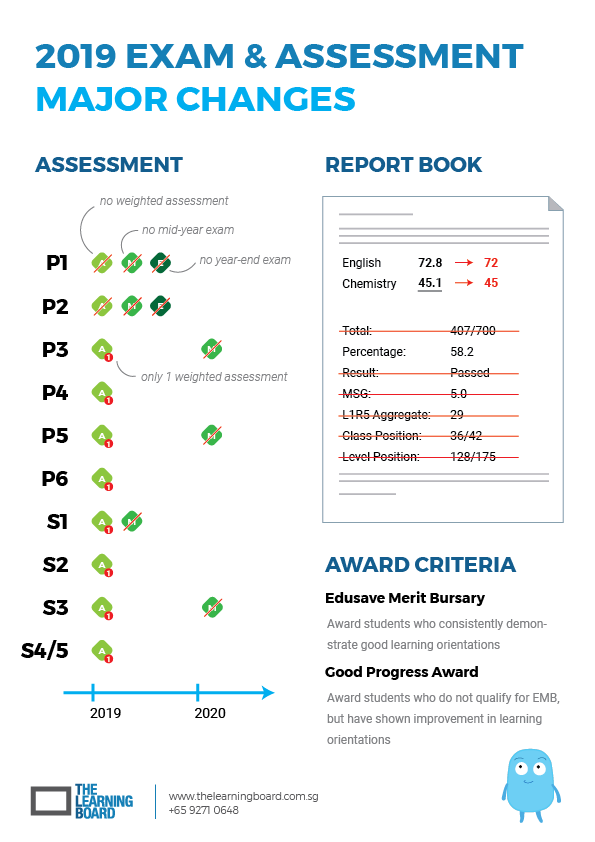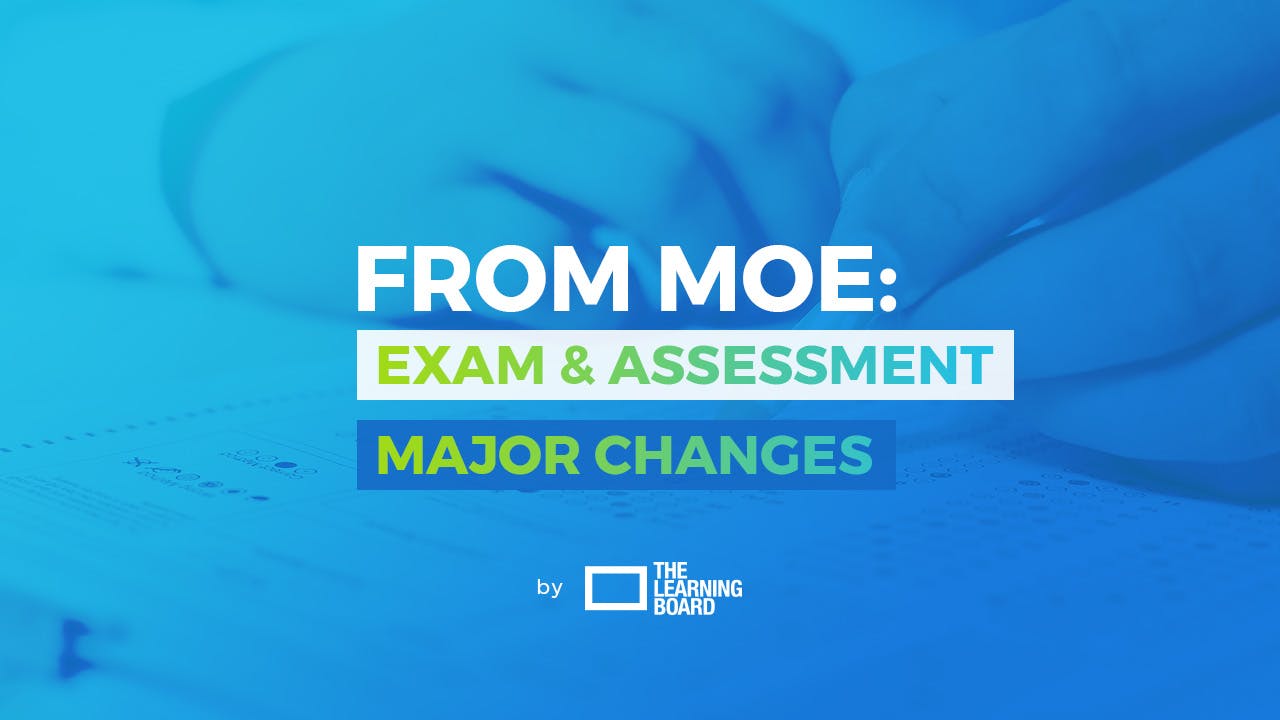Key Changes
If you only have 5 minutes, here are the main points you need to know. There's also a high-resolution PDF that you can download and print out. Please find the download button below the image.

The Details
Here is the mobile-friendly table extracted from MOE's press release.
Changes | Currently | From 2019 | From 2020 (or 2021)
--- | --- | --- | ---
Adjusting School-Based Assessment Structures | P1 – no examination, but weighted assessments are conducted throughout the year
P2 – weighted assessments throughout the year and year-end exam
P3-P6 – MYE and year-end exam, in addition to weighted assessments throughout the year
Secondary level – most schools conduct MYE and year-end exam, in addition to other weighted assessments throughout the year | P1 and P2 – removal of all weighted assessments (including P2 year-end exam)
S1 – removal of MYE
From P3 to S4/5 – schools to conduct no more than one weighted assessment per subject, per school term. This is in addition to MYE and year-end exam at levels where this is applicable. | P3, P5, S3 – removal of MYE
Refreshing the Holistic Development Profile | Use of academic indicators to report students' learning in all subjects and non-academic indicators (e.g. physical fitness, involvement in community-based and cocurricular activities etc.) | P1 and P2 – Use qualitative descriptors to report students’ learning in all subjects. Nonacademic indicators will be retained.
All other levels – academic indicators adjusted for HDP. Non-academic indicators will be retained. | -
Revising the criteria for the Edusave Merit Bursary (EMB) for P1 and P2 and Edusave Good Progress Award (GPA) for P2 and P3 | EMB for P1 and P2
Singapore Citizen
Top 25% of school’s level and course in terms of academic performance.
Good conduct
Monthly household income does not exceed $6,900 (or per capita income does not exceed $1,725)
GPA for P2 and P3
Singapore Citizen
Top 10% of school’s level and course in terms of improvement in academic performance
Good conduct | EMB for P1 and P2
Singapore Citizen
EMB will be adjusted to award students who consistently demonstrate good learning orientations
Good conduct will continue to be a criterion
Monthly household income does not exceed $6,900 (or per capita income does not exceed $1,725)
GPA for P2 and P3
Singapore Citizen
GPA will be awarded to students who do not qualify for EMB, but have shown improvement in learning orientations within the year
Good conduct will continue to be a criterion | -
Thoughts
Even though MOE's new implementations can be controversial and questionable, their intention of motivating students beyond exam results is plausible. In fact, The Learning Board has been focusing on long-term goals of academic achievement rather than immediate academic success. We ensure that our holistic approach with educating students not only prepares them academically, but also fulfills the aspect of emotional and social needs.
Students at The Learning Board get to:
- Take responsibilities: We teach our students to accept their responsibilities. They must be the ones who work for their own academic improvements. We accompany them and provide support so they achieve their goals.
- Enjoy studying: Curiosity and fun should be part of studying. We keep our class atmosphere lively, open and friendly so our students love coming to class and actively participate in discussions Master time management: Students need to know how to manage their time so that they can still have some time left for their personal matters. We concentrate during class so everyone learns how to manage time.
- Realise their strengths: We recognise our students' potentials, help them reinforce their strengths and work on their weaknesses together.
- Be resilient: We encourage students along the way so they think positive when things turn unfavourable. Success comes with patience and persistence.
As an academic institution, we understand exactly what academic success is and position students to develop lasting skills to improve themselves through motivation, curiosity, perseverance and time management.


